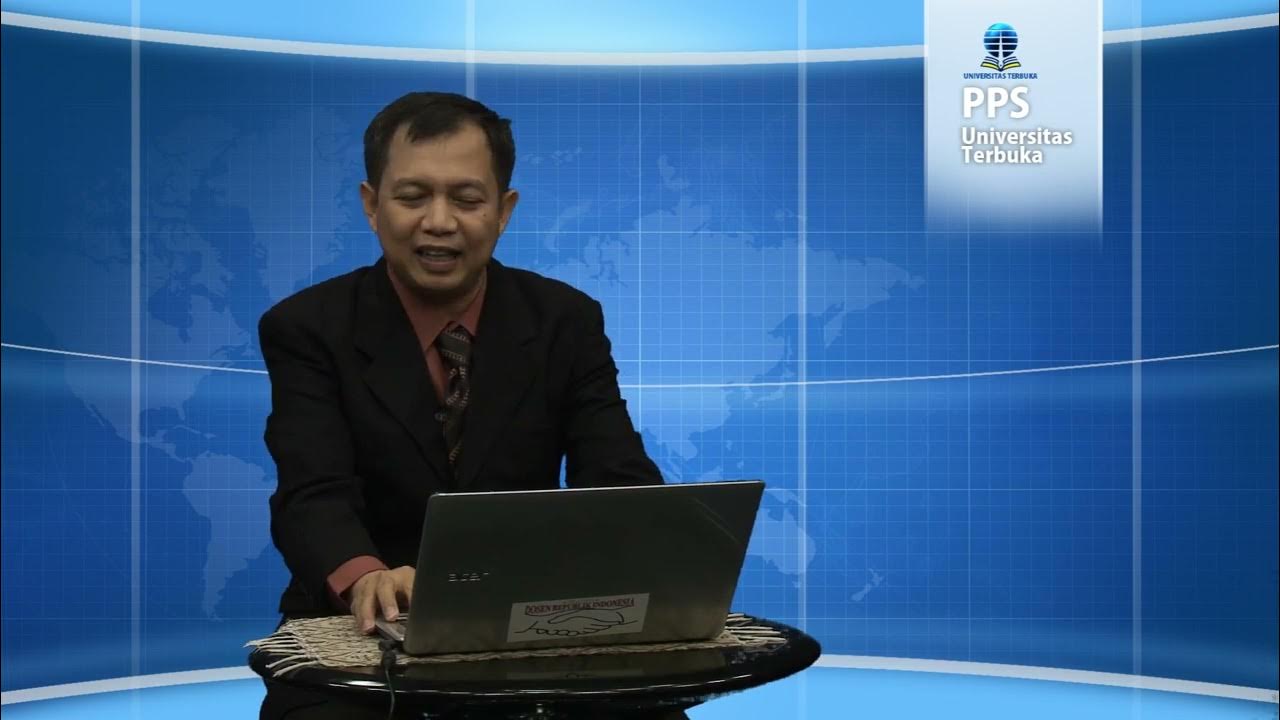Apa itu Desentralisasi?
Summary
TLDRThis lecture explores the concept of decentralization, focusing on its definition, key principles, and implementation. It explains how decentralization involves redistributing power and responsibilities from central to local governments, aiming to improve efficiency, accountability, and political stability. The principle of subsidiarity is central, emphasizing that local entities can manage tasks more effectively. The lecture also discusses the advantages, such as reduced bureaucracy and improved governance, as well as potential drawbacks like regional conflicts and economic disparities. Finally, it covers the legal framework for decentralization in Indonesia, referencing key laws and constitutional guidelines.
Takeaways
- 😀 Decentralization refers to the transfer of authority and responsibilities from central governments to local or regional governments.
- 😀 According to the UNDP, decentralization aims to improve governance by restructuring political institutions at the local, regional, and national levels.
- 😀 The principle of subsidiarity emphasizes that local institutions are better suited to handle tasks efficiently and effectively due to their proximity to citizens.
- 😀 Decentralization seeks to create a system of shared responsibility between central and local governments, enhancing political accountability.
- 😀 The primary goals of decentralization are improving the efficiency and effectiveness of governance while increasing the capacity of local governments.
- 😀 Desentralization promotes political and economic stability, ensuring a more equitable balance between central and regional governments.
- 😀 Local governments play a key role in ensuring that government services are more accessible, leading to faster and more efficient operations.
- 😀 Key advantages of decentralization include reduced bureaucracy, greater efficiency, closer government-citizen interaction, and more local participation in governance.
- 😀 Potential disadvantages of decentralization include regional conflicts, economic disparities between regions, and the rise of local elites or small 'power centers.'
- 😀 In Indonesia, decentralization is supported by the 1945 Constitution, specifically Article 18, which outlines the roles and powers of local governments.
- 😀 Indonesian laws such as Law No. 32/2004 on Regional Governance, revised to strengthen local governance, provide the legal framework for decentralization in the country.
Q & A
What is decentralization, and how is it defined by UNDP?
-Decentralization, as defined by UNDP, refers to the restructuring or reorganization of authority and responsibilities within a governance system. It involves transferring powers to regional and local levels of government, based on the principle of subsidiarity, which holds that tasks are most effectively handled at the local level.
What is the principle of subsidiarity in the context of decentralization?
-The principle of subsidiarity emphasizes that tasks or affairs are more efficiently and effectively managed by local agents or governments rather than centralized authorities. It is the belief that local governments are better suited to handle certain issues, improving the overall effectiveness of governance.
What are the three key components of decentralization mentioned in the script?
-The three key components of decentralization are: 1) Restructuring or reorganizing authority; 2) A system of shared responsibility between different levels of government; 3) The application of the principle of subsidiarity, where local governments take on certain tasks for greater efficiency.
Why does decentralization emerge in many countries?
-Decentralization arises primarily for two reasons: practical reasons, such as improving efficiency, effectiveness, and trust in local governance, and political reasons, such as maintaining political stability and economic equity between regions.
What are the practical reasons for decentralization?
-Practical reasons include increasing the efficiency and effectiveness of governance by delegating tasks to local authorities. This reduces bureaucracy and enables quicker, more precise responses to local issues, benefiting citizens.
What are the political reasons for decentralization?
-Political reasons for decentralization include addressing tensions between central and regional governments, preventing separatism, and ensuring economic equity between regions, helping to maintain national stability.
What are some advantages of decentralization?
-Some advantages of decentralization include reduced bureaucracy, improved efficiency, closer government-citizen interaction, and the ability for local governments to better absorb citizens' needs and aspirations.
What are some potential disadvantages or challenges of decentralization?
-Decentralization can lead to conflicts between regions over shared resources, such as water management. It may also create disparities between rich and poor regions, leading to economic imbalances, and sometimes foster local political leaders gaining excessive power ('small kings').
What is the legal basis for decentralization in Indonesia?
-In Indonesia, decentralization is legally grounded in the Constitution (UUD 1945), particularly Article 18, which divides the country into provinces, districts, and cities, each with local governance. It is further regulated by laws such as Law No. 5/1974, Law No. 22/1999, and the most recent, Law No. 23/2014 on local governance.
What is the role of local governments in Indonesia's decentralization process?
-Local governments in Indonesia have the authority to manage their own affairs based on the principles of autonomy and assistance. While they have full autonomy to govern local matters, they also serve as extensions of the central government, implementing certain national programs.
Outlines

This section is available to paid users only. Please upgrade to access this part.
Upgrade NowMindmap

This section is available to paid users only. Please upgrade to access this part.
Upgrade NowKeywords

This section is available to paid users only. Please upgrade to access this part.
Upgrade NowHighlights

This section is available to paid users only. Please upgrade to access this part.
Upgrade NowTranscripts

This section is available to paid users only. Please upgrade to access this part.
Upgrade NowBrowse More Related Video

MPDR5301 - Kepemimpinan & manajemen pendidikan dasar | Konsep Kepemimpinan Pendidikan

Utomo, S.Pd., MM - Pengelolaan Pendidikan (Sesi 2 - Wawasan Dasar Pengelolaan Pendidikan)

Pertemuan 2 - CSR - Rosanah, S.S., M.I.Kom., AMIPR

Geografi Kelas XII (5) Struktur Keruangan serta Perkembangan Kota

Introduction to Corporate Governance

Materi Inisiasi 1, MK. Kawasan Teknologi Pendidikan
5.0 / 5 (0 votes)